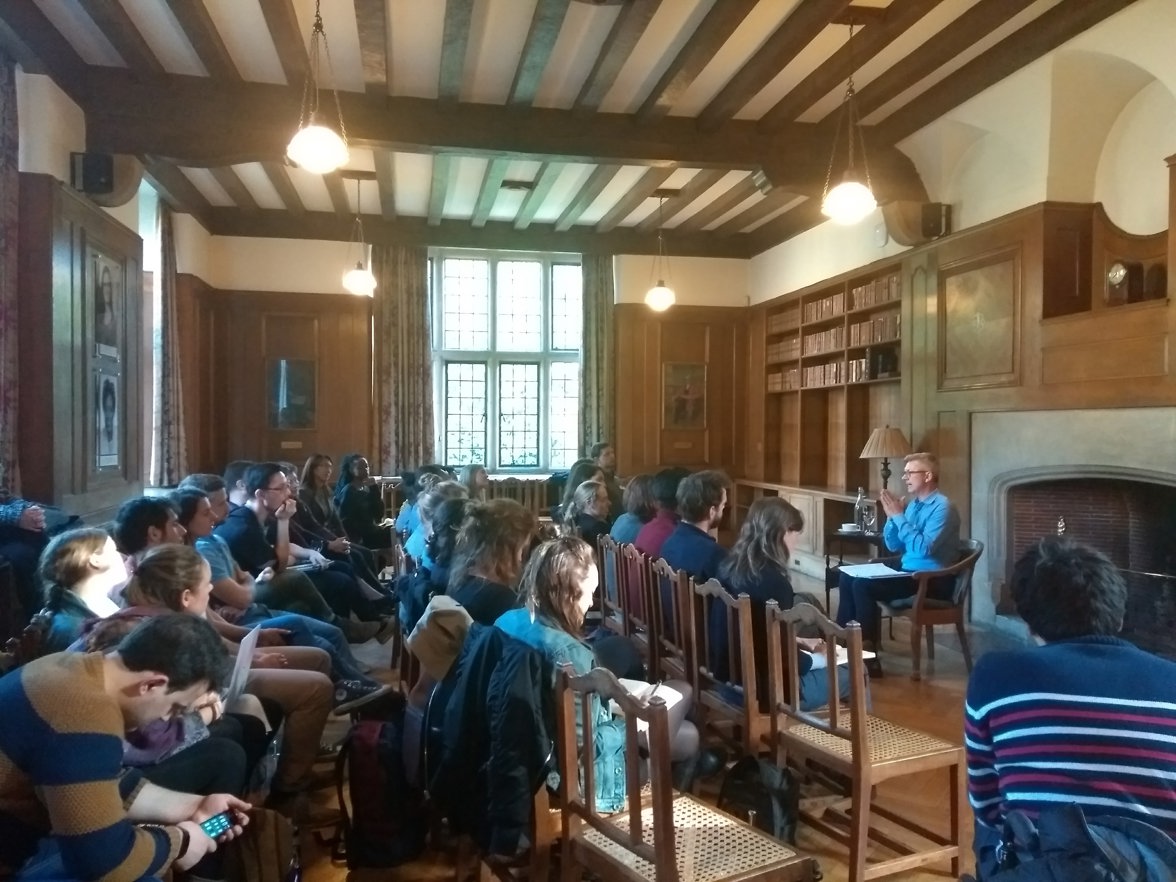When I first spoke with Gregor Henderson in the lead up to his workshop at Rhodes House he told me that developing any mental health strategy met all the criteria for a WICKED problem – it’s difficult to define, even more complex to measure and is markedly interdependent on social and cultural norms and existing educational and social services. It was the perfect framing with which to approach his workshop on 2nd May 2018, conducted as a “dialogue” on mental health. Across a 90 minute interactive workshop, Gregor, who is the National Lead for Mental Health and Wellbeing strategy for Public Health England, showed himself to be truly at the forefront of thought around mental health.
Getting the terminology right is important to Gregor, and it’s easy to see why. Defining the task ahead for mental health strategy, Gregor argued, is one that intimately relies upon precisely articulating exactly what we are trying to address. While acknowledging the gains of health promotion, he cautioned against indiscriminate use of “wellness” rhetoric which can fall short of tackling actual mental illness and could run the risk of “othering” those with serious mental illness. Instead, we need to talk seriously about what mental health means and what mental illness looks like. Addressing mental health within the community requires an inclusive strategy, argues Gregor, that supports individuals diagnosed with illnesses across a spectrum of care – from counselling and community support services to medication and inpatient care in serious cases.
The history of mental health policy is equally fraught with controversial strategies. The 1960s and 70s saw a movement away from institutionalisation of patients with mental illness with the closing of asylums across many countries, only to leave people with serious illness and disability abandoned within communities with limited social support structures. While community-based support has become the norm in today’s world, Gregor highlighted the ongoing debate between those in favour of integrating acute psychiatric services into hospitals, and those seeking to keep mental health services out of the hospital setting. It’s a question that has no easy answer and is unlikely to be resolved in the near future.
The question of interdependence has no simple answer either. Recognising the important role of cultural context and social environment on mental health and mental illness paradigms, Gregor frankly acknowledged that we “should be spending half of our time talking about education and social services” as well as mental health care. Gregor raised the controversially challenging views being put forward questioning whether the biomedical approach to mental illness may be on the decline, with commentators calling for more integrated bio-psycho-social models and ones that also centre more on functioning alongside diagnosis. Gregor felt there is promise in theories such as the integral framework as a helpful model for conceptualising mental health, mental distress and mental illness.
Leaving students with as many questions as answers, Gregor painted the modern challenge of mental health strategy with all of its complexities and uncertainties. Yet for all the questions left unanswered, Gregor’s optimism reinforced the old adage that the first challenge lies in asking the right questions.
Gregor Henderson is the Strategic Adviser on Mental Health and Wellbeing for Public Health England. He has previously worked as advisor to the Department of Health, England and directed the world-renowned Scottish government’s National Programme for Improving Mental Health and Wellbeing.
Rhodes for Wellbeing (R4W) is a team of current Rhodes Scholars committed to promoting positive mental health and wellbeing among Rhodes scholars and students more generally. We aim to support Rhodes Scholars by encouraging dialogue around emotional wellbeing, destigmatising mental illness within the wider Rhodes community and strengthening support networks and escalation pathways to help scholars requiring additional assistance.


